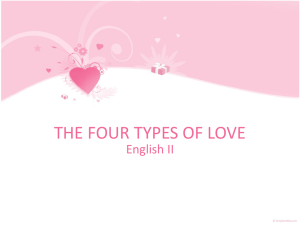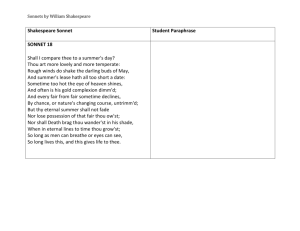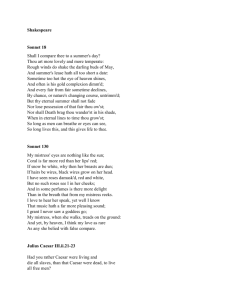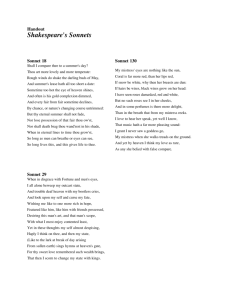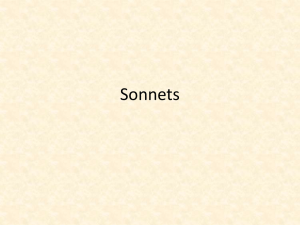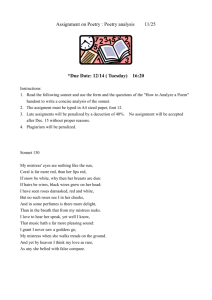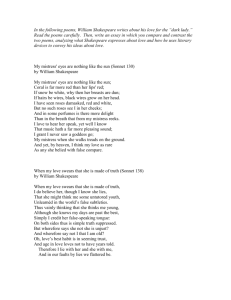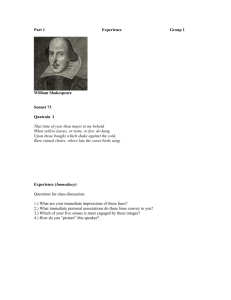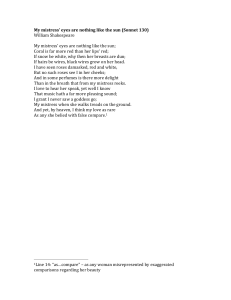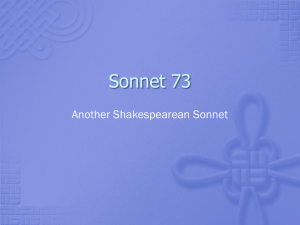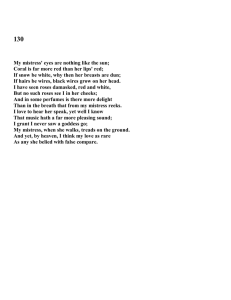THE FOUR TYPES OF LOVE
advertisement
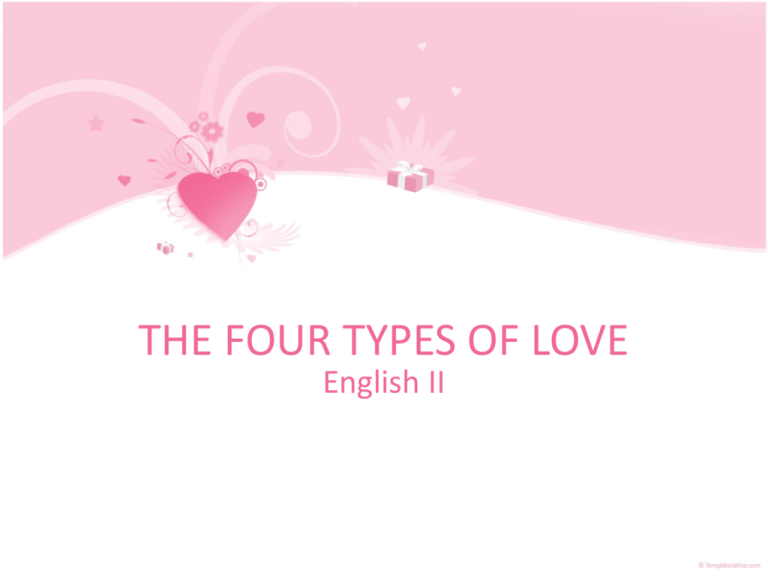
THE FOUR TYPES OF LOVE English II Eros: Romantic Love • Physical attraction • Self-benefit (I love you because it makes me happy…) • Often short-lived Security Love • Often occurs between family members • The feeling of being safe, cared for and nurtured Philos: Friendship Love • A relationship of mutual respect and admiration • Enjoyment of each other’s company • Give-and-Take: both parties are concerned with what they can give and gain Agape: Unconditional Love • Highest form of love • You would do anything for that person… • Totally selfless: One person gives love to another even if it doesn’t benefit him/her in any way. As you wish… Something by The Beatles Something in the way she moves Attracts me like no other lover Something in the way she woos me I don't want to leave her now You know I believe and how Somewhere in her smile she knows That I don't need no other lover Something in her style that shows me I don't want to leave her now You know I believe and how You're asking me will my love grow I don't know, I don't know You stick around and it may show I don't know, I don't know Something in the way she knows And all I have to do is think of her Something in the things she shows me I don't want to leave her now You know I believe and how Sonnet 30 by Shakespeare When to the sessions of sweet silent thought I summon up remembrance of things past, I sigh the lack of many a thing I sought, And with old woes new wail my dear time's waste: Then can I drown an eye, unused to flow, For precious friends hid in death's dateless night, And weep afresh love's long since cancell'd woe, And moan the expense of many a vanish'd sight: Then can I grieve at grievances foregone, And heavily from woe to woe tell o'er The sad account of fore-bemoaned moan, Which I new pay as if not paid before. But if the while I think on thee, dear friend, All losses are restored and sorrows end. Sonnet 73 by Shakespeare That time of year thou mayst in me behold When yellow leaves, or none, or few, do hang Upon those boughs which shake against the cold, Bare ruin'd choirs, where late the sweet birds sang. In me thou seest the twilight of such day As after sunset fadeth in the west, Which by and by black night doth take away, Death's second self, that seals up all in rest. In me thou see'st the glowing of such fire That on the ashes of his youth doth lie, As the death-bed whereon it must expire Consumed with that which it was nourish'd by. This thou perceivest, which makes thy love more strong, To love that well which thou must leave ere long. Sonnet 116 by Shakespeare Let me not to the marriage of true minds Admit impediments. Love is not love Which alters when it alteration finds, Or bends with the remover to remove: O no; it is an ever-fixed mark, That looks on tempests, and is never shaken; It is the star to every wandering bark, Whose worth's unknown, although his height be taken. Love's not Time's fool, though rosy lips and cheeks Within his bending sickle's compass come; Love alters not with his brief hours and weeks, But bears it out even to the edge of doom. If this be error, and upon me prov'd, I never writ, nor no man ever lov'd. Sonnet 130 by Shakespeare My mistress' eyes are nothing like the sun; Coral is far more red than her lips' red: If snow be white, why then her breasts are dun; If hairs be wires, black wires grow on her head. I have seen roses damask'd, red and white, But no such roses see I in her cheeks; And in some perfumes is there more delight Than in the breath that from my mistress reeks. I love to hear her speak,--yet well I know That music hath a far more pleasing sound; I grant I never saw a goddess go, My mistress when she walks, treads on the ground; And yet, by heaven, I think my love as rare As any she belied with false compare.
